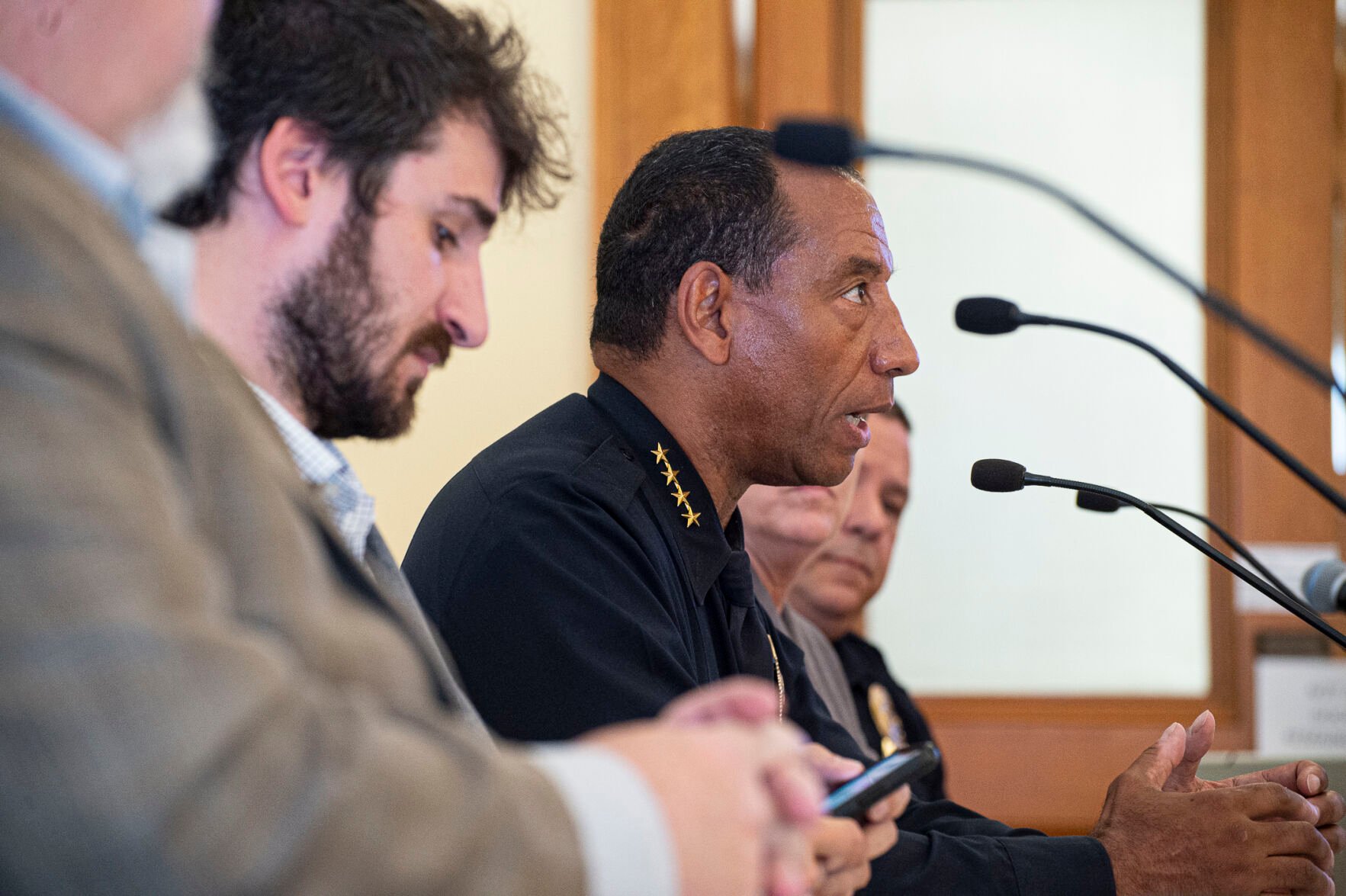Independent monitor criticizes Denver police’s proposed education-based discipline policy
Calling it a “not-so-veiled” attempt to eliminate accountability for officers,” Denver Independent Monitor Lisabeth Pérez Castle sharply criticized a proposal by the Denver Police Department to permit officers facing disciplinary action or “lower-level” offenses to participate in educational training, rather than face punishments.
During the first meeting of the city’s new Health and Safety Committee on Wednesday, Castle argued that education-based discipline (EBD) lacks research, removes the accountability from discipline and erodes community trust.
“I want to be clear,” Castle added, “the OIM does not support education based discipline. We do not agree with the approach or believe it is necessary — additional training that targets demonstrated deficiencies is welcome. Such training should be provided in addition to discipline penalties.”
Pushing the policy shift is Denver Police Chief Ron Thomas, who believes a training regimen would ultimately reduce the chances of officers re-offending and lead to quicker resolutions of disciplinary cases.
Thomas, who did not attend the healthy and safety committee meeting, told The Denver Gazette that The Denver Police Department “has and will continue to hold officers accountable” and that the proposed education-based process does not remove accountability but rather “helps officers understand their mistakes, while teaching them the proper method to handle the issue if they are to encounter it in the future.”
Thomas added that it is not a new concept, and that department will utilize it in a manner that works for the agency and those it serves.
“While EBD does not yet have a large body of rigorous, long-term studies, particularly within a policing context, there is strong evidence-based rationale to consider EBD as an effective practice, as interventions grounded in fairness, dialogue, and coaching consistently enhance accountability-related outcomes,” Thomas said.
Created in 2004, the Office of the Independent Monitor (OIM) provides civilian oversight of the Denver Police (DPD) and Denver Sheriff’s Department (DSD). Along with investigating complaints, monitoring investigations and recommending disciplinary actions, the office is charged with evaluating the city’s law enforcement policies.
Castle insisted that research supporting the success and effectiveness of EBD is scant.
“There is no best practice research indicating that EBD reduces officer recidivism serves a stronger deterrent than traditional discipline, or makes community members and officers safer,” she told the committee. “EBD has not been recognized as a best practice by the International Association of Chiefs of Police(IACP), the Police Executive Research Forum (PERF), or the Department of Justice (DOJ).”
Under the proposed policy, officers participating in EBD violations would still be eligible for promotions.
“An officer, in fact, cannot have an aggravated penalty for previous conduct if they were given EBD because it wasn’t a sustained finding, Castle said. “So you can have EBD violations, you can be on a plan for EBD, and you can get promoted.”
The education-based shift in policy borrows from an alternative discipline program implemented by the Los Angeles County Sheriff’s Department in 2009, where recidivism dropped to less than 10% in the 54 months after its launched, according to one official who helped set up the program.
Critics have argued that the plan was rolled out with little community engagement and without OIM’s involvement.
“Per ordinance, the OIM must have an opportunity to review make recommendations on any law enforcement policy that impacts oversight,” Castle said.
Thomas gave The Denver Gazette several reasons for the changes, including the lower recidivism rate in officers who received the education in Los Angeles and examples of effective discipline in the private sector.
He has also cited the need for quicker resolution to pending disciplinary cases.
“This is, for me, motivated only by the fact that I think we need to resolve cases faster for the community,” Thomas said in an April 10 the webinar, noting how the current process takes about nine months, a timeframe that is cumbersome but is necessary to involve all the parties.
“I think that if we can very quickly — in a matter of weeks, rather than a matter of months — let someone know that yes, this is a sustained violation and the officer is going to be trained to correct his behavior and make sure that he understands the expectation of the community and the expectation of the department going forward, I think that’s a resolution,” Thomas said.
Castle stated her concern is the “only way to shorten the discipline process without mutual engagement, is to eliminate oversight.”
“We, the Office of the Independent Monitor, must review investigations and certify that they are thorough and complete,” she said. “If you remove our review function, you have the police policing themselves.”
Thomas is slated to present DPD’s responses next week during the city’s mayor-council meeting, committee members said.
Thomas said the independent monitor presented the Denver Police Department with 28 total recommendations for consideration, and that his agency fully incorporated 24 and partially incorporated 2 of them.





